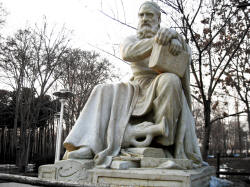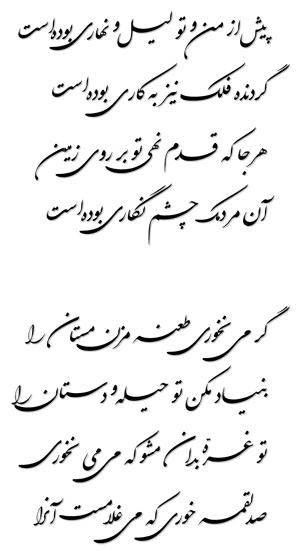Omar Khayyam (circa 1050-1122), Persian mathematician, astronomer, and author of one of the world's best-known works of poetry. He was born in Neyshābūr (Nishapur, Iran); his name means Omar the Tentmaker. As astronomer to the royal court, he was engaged with several other scientists to reform the calendar; their work resulted in the adoption of a new era, called the Jalalian or the Seljuk. As a writer on algebra, geometry, and related subjects, Omar was one of the most notable mathematicians of his time. He is, however, most famous as the author of the Rubáiyát. About 1,000 of these epigrammatic four-line stanzas, which reflect upon nature and humanity, are ascribed to him. The English poet and translator Edward FitzGerald was the first to introduce Omar to the West through a version (1859) of 100 of the quatrains. The FitzGerald translation is still the best known in the West, but in the late 1960s the quality of the translation was challenged by British poet Robert Graves. In 1968, in collaboration with the Sufi poet Omar Ali-Shah, Graves produced The Original Rubáiyát of Omar Khayyam. Graves's version is unrhymed and uses contemporary diction. Ref® Encarta ® 2008. © 1993-2007 Microsoft Corporation. All rights reserved.
پیش از من و تو لیل و نهاری
بوده است گردنده فلک نیز به کاری بوده است هر جا که
قدم نهی تو بر روی زمین آن مردمک چشم نگاری بوده است.
گر می نخوری طعنه مزن مستان را بنیاد مکن تو حیله و
دستان را تو غره بدان مشو که می می نخوری صد لقمه خوری
که می غلام است آنرا رباعیات عمر خیام |

